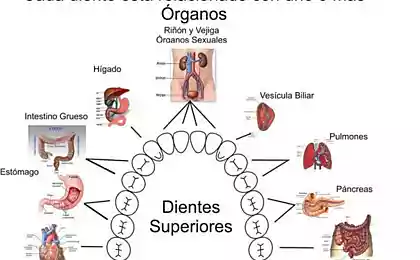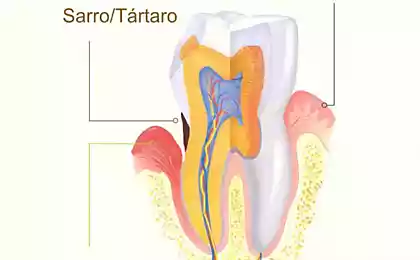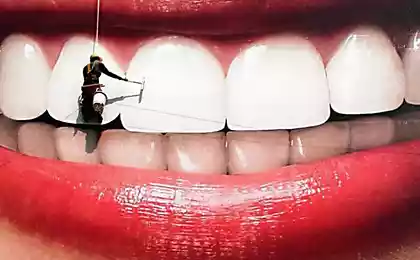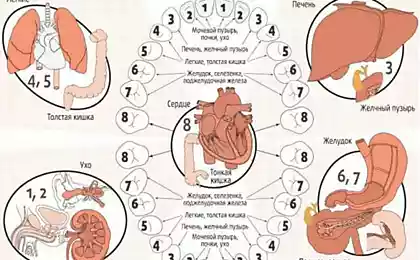235
Teeth are connected to internal organs: how to detect problems

In ancient times, it was known that the human body is a harmonious system in which each element is connected with another. In this context, teeth have a special place. Modern research shows that dental health is directly related to the condition of internal organs. Some diseases can manifest through symptoms in the oral cavity, and vice versa, the condition of the teeth can signal hidden problems in the body. In this article, we will look at how to detect problems with internal organs, based on the condition of the teeth.
Health Ecology: The Importance of Dental Diagnosis
Numerous studies confirm that teeth can be indicators of overall health. The condition of the teeth can help in the early diagnosis of diseases of the heart, liver, kidneys and other internal organs. For example, infections in the teeth or gums can affect the health of the whole body, as bacteria can enter the bloodstream, leading to inflammation and disruption of the functioning of internal systems.
Teeth and gums not only play a role in the perception of facial aesthetics, but are also important indicators of overall health. Therefore, it is so important to monitor their condition and consult a specialist in time for prevention and treatment.
How is dental health related to internal organs?
1. Dental problems and heart disease
One striking example of the connection between teeth and internal organs is the heart. Studies show that gum disease, such as gingivitis or periodontitis, can increase the risk of cardiovascular disease. This is because inflammation in the gums can promote the spread of bacteria through the bloodstream, which in turn can lead to inflammation of the heart vessels.
2. Teeth and kidney disease
For a long time, dentists noted that patients with kidney disease are more likely to suffer from gum disease. The reason is that if the kidneys are disrupted, excess toxins can accumulate in the body, which negatively affects the gum tissues and teeth. Periodontitis is often one of the early symptoms of kidney disease.
3. Liver and dental health
Liver diseases, such as hepatitis, can also manifest as dental problems. Often in such cases, there is a change in the color of the teeth, the appearance of ulcers in the mouth, as well as bleeding gums. This is due to the fact that the liver plays an important role in filtering toxins, and its diseases can lead to the accumulation of harmful substances in the body, which affects the condition of the teeth and gums.
4. Diabetes and teeth
People with diabetes often face dental problems. High blood sugar promotes the reproduction of bacteria in the oral cavity, which leads to inflammation of the gums, caries and other diseases. Controlling blood sugar levels can help not only treat diabetes, but also keep teeth healthy.
How to detect problems with the condition of the teeth?
It is important to understand that teeth can be an indicator of more serious problems in the body. Here are a few signs that can signal hidden diseases:
- Frequent bleeding from the gums: May indicate problems with the cardiovascular system or liver.
- The appearance of ulcers in the mouth: Often indicates a violation of the immune system or the presence of infection in the body.
- Yellowing of teeth or changing their color: It may be associated with liver or kidney disease.
- Smell from the mouth: Indicates a violation of the digestive system or gum disease.
- Bite problems or tooth roughness: May indicate a deficiency of vitamins or hormonal disorders.
How to maintain the health of teeth and internal organs?
Prevention of diseases of the teeth and internal organs begins with proper oral care. Regular visits to the dentist, hygiene and a healthy diet will help maintain dental health and prevent the development of serious diseases. Here are some simple recommendations:
- Regular brushing of teeth. Brush your teeth at least twice a day using fluoride toothpaste.
- Visiting the dentist. Regular examinations by the dentist will help to identify problems at an early stage and avoid their complications.
- Good nutrition. Limit your sugar intake and include foods rich in vitamins and minerals that support dental health.
- Taking care of the gums. Use floss and rinses to strengthen the gums and prevent inflammation.
- Health monitoring. Regularly check the health of the internal organs to prevent the occurrence of diseases.
Conclusion
Teeth are not only an important element of appearance, but also an indicator of the state of our health. Taking care of your teeth and having regular dental checkups can help identify hidden problems with your internal organs. Keep an eye on your mouth and your health will be in safe hands.
Where are hidden toxic substances that provoke weight gain
Reamberine: The Way to Reviving Energy and Health























